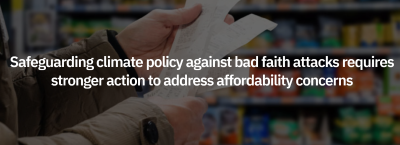Backgrounder – COVID 19
Why Canada Needs to Invest in a Global Response
- Covid-19 anywhere is a threat to us all, everywhere. Our world, our country and our economy won’t get back on track until Covid-19 is defeated everywhere.
- Viruses don’t respect borders. None of us are safe until all of us are safe.
- So far, only about 0.25% of Canada’s response to Covid-19 has been spent on a global response. A domestic recovery that ignores global public health and economic context will be temporary and fragmented.
- Canada should invest at least 1% (around $2 billion) of its response to Covid-19 towards an urgent global response to stop the pandemic and the unprecedented humanitarian and development crisis it has created.
- This will not only save many lives, but cost billions less than the global economy is losing every month due to the pandemic.
- Investing at least 1% of what we have spent to fight Covid-19 at home can help prevent decades of progress in ending extreme poverty from being wiped out.
Background:
- So far Canada has provided close to CA$500 million in foreign aid to help poorer countries tackle Covid-19. This is a good start, but not at all enough given the scale of the crisis we are in. This money is also not new because it came from the existing aid budget. The foreign aid budget needs to increase, urgently.
- Right now rich countries are fighting each other to have access to doses of an eventual vaccine, and it’s not helping anyone. This is a global pandemic, and the most effective way to end it is for countries to work together to find the most effective vaccine and distribute it equitably, focussing first on those most at risk. Canada’s 1% investment should include support for countries to have access to vaccines when they become available, but also tests and treatments.
- Around US$30 billion is needed now to provide tests, treatments and initial doses of a vaccine for the next 12-18 months in lower income countries. This seems like a lot, but it’s less than a tenth of what the IMF estimates the global economy is losing every month due to the pandemic. We need to invest more now so it doesn’t cost us more down the road.
- An estimated 71 million people are expected to be pushed back into extreme poverty in 2020, the first rise in global poverty since 1998. Lost incomes, limited social protection and rising prices mean even those who were previously secure could find themselves at risk of poverty and hunger.
- Women and children are also among those bearing the heaviest brunt of the pandemic’s effects. Disruption to health and vaccination services and limited access to diet and nutrition services have the potential to cause hundreds of thousands of additional under-5 deaths and tens of thousands of additional maternal deaths in 2020. Many countries have seen a surge in reports of domestic violence against women and children.
- School closures have kept 90 per cent of students worldwide (1.57 billion) out of school and caused over 370 million children to miss out on school meals they depend on. Lack of access to computers and the internet at home means remote learning is out of reach of many.


